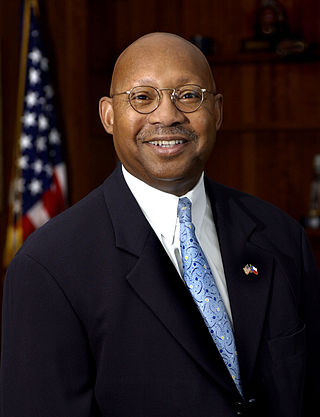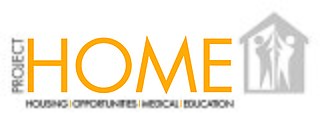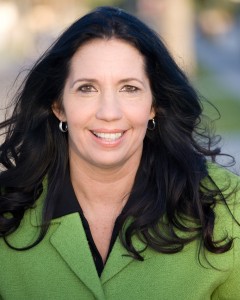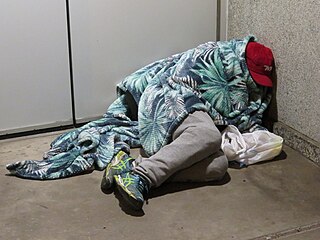Related Research Articles

Alphonso R. Jackson served as the 13th United States Secretary of Housing and Urban Development (HUD). He was nominated by President George W. Bush on August 28, 2004, and confirmed by the Senate on August 31, 2004. Jackson announced his resignation on March 31, 2008.

Henry Gabriel Cisneros is an American politician and businessman. He served as the mayor of San Antonio, Texas, from 1981 to 1989, the second Latino mayor of a major American city and the city's first since 1842. A Democrat, Cisneros served as the 10th Secretary of Housing and Urban Development (HUD) in the administration of President Bill Clinton from 1993 to 1997. As HUD Secretary, Cisneros was credited with initiating the revitalization of many public housing developments and with formulating policies that contributed to achieving the nation's highest ever rate of home ownership. In his role as the President's chief representative to the cities, Cisneros personally worked in more than two hundred cities spread over all fifty states. Cisneros's decision to leave the HUD position and not serve a second term was overshadowed by controversy involving payments to his former mistress.

In the United States, the number of homeless people on a given night in January 2023 was more than 650,000 according to the Department of Housing and Urban Development. Homelessness has increased in recent years, in large part due to an increasingly severe housing shortage and rising home prices in the United States. Most homeless people lived in California, New York, Florida, and Washington in 2022, according to the annual Homeless Assessment Report. The majority of homeless people in the United States have been homeless for less than one year; two surveys by YouGov in 2022 and 2023 found that just under 20 percent of Americans reported having ever been homeless.

Homeless shelters are a type of service that provides temporary residence for homeless individuals and families. Shelters exist to provide residents with safety and protection from exposure to the weather while simultaneously reducing the environmental impact on the community.
The Kensington Welfare Rights Union (KRWU) is a progressive social justice, political action, and advocacy group of, by, and for the poor and homeless operating out of Philadelphia, Pennsylvania. The group was founded by six women, Alexis Baptist, Sandy Brennan, Diane Coyett, Cheri Honkala, Louis Mayberry, and Debra Witzman, and formed in Philadelphia's Kensington neighborhood in April 1991.

Affordable housing is housing which is deemed affordable to those with a household income at or below the median, as rated by the national government or a local government by a recognized housing affordability index. Most of the literature on affordable housing refers to mortgages and a number of forms that exist along a continuum – from emergency homeless shelters, to transitional housing, to non-market rental, to formal and informal rental, indigenous housing, and ending with affordable home ownership. Demand for affordable housing is generally associated with a decrease in housing affordability, such as rent increases, in addition to increased homelessness.

Housing refers to the usage and possibly construction of shelter as living spaces, individually or collectively. Housing is a basic human need and a human right, playing a critical role in shaping the quality of life for individuals, families, and communities, As such it is the main issue of housing organization and policy.

Homelessness, also known as houselessness or being unhoused or unsheltered, is the condition of lacking stable, safe, and functional housing. It includes living on the streets, moving between temporary accommodation with family or friends, living in boarding houses with no security of tenure, and people who leave their homes because of civil conflict and are refugees within their country.

Sister Mary Scullion, R.S.M. is a Philadelphia-based American Roman Catholic religious sister and activist, and the co-founder, executive director and president of Project H.O.M.E. She was named by TIME as one of the "100 Most Influential People in the World" in 2009. In 2011, Scullion received the Laetare Medal, the highest award given to an American Catholic.

In the Seattle King County area, there were estimated to be 11,751 homeless people living on the streets or in shelters. On January 24, 2020, the count of unsheltered homeless individuals was 5,578. The number of individuals without homes in emergency shelters was 4,085 and the number of homeless individuals in transitional housing was 2,088, for a total count of 11,751 unsheltered people.

Project HOME is a nationally recognized 501(c)(3) non-profit organization that provides housing, opportunities for employment, medical care and education to homeless and low-income persons in Philadelphia, Pennsylvania.

Cheri Lynn Honkala is an American anti-poverty advocate, co-founder of the Kensington Welfare Rights Union (KWRU) and co-founder and National Coordinator of the Poor People's Economic Human Rights Campaign, also called the Poor People's Army. She has been a noted advocate for human rights in the United States and internationally. She is the mother of actor Mark Webber.
Bethesda Project is a nonprofit organization that provides shelter, housing, and programs reaching out to individuals experiencing homelessness in Philadelphia, Pennsylvania. From humble beginnings as a small group of volunteers, Bethesda Project has grown to provide care that encompasses emergency shelter, housing, and supportive services at 15 locations in and around Center City Philadelphia.
In early March 2017, thousands of members of the group Kalipunan ng Damayang Mahihirap and other informal settlers illegally occupied an idle housing project of the National Housing Authority (Philippines) (NHA), in Pandi, Bulacan, in the Philippines.

Homelessness is a growing problem in Colorado and is considered the most important social determinants of health. Homelessness is very difficult for many Coloradoans to escape due to the continuous increase in costs for housing in Colorado, along with mental health treatments and other factors. When people are forced to live without stable shelter, they are then exposed to a number of risk factors that affect physical and mental health. Although it is difficult to pin point any one cause of homelessness, there is a complicated combination of societal and individual causes.

The United States Department of Housing and Urban Development estimated that more than 181,399 people were experiencing homelessness in California in January 2023. This is one of the highest per capita rates in the nation, with 0.46% of residents estimated as being homeless. More than two-thirds of homeless people in California are unsheltered, which is the highest percentage of any state in the United States. 49% of the unsheltered homeless people in the United States live in California. Even those who are sheltered are so insecurely, with 90% of homeless adults in California reporting that they spent at least one night unsheltered in the past six months.

David Fair is an American activist who has been a leader in the labor, LGBT, AIDS, homeless and child advocacy movements in Philadelphia, PA since the 1970s. He has founded or co-founded several advocacy and service organizations, including the Philadelphia Lesbian and Gay Task Force (1977), the Philadelphia Gay Cultural Festival (1978), Lavender Health (1979), the Philadelphia/Delaware Valley Union of the Homeless (1985), Philly Homes 4 Youth (2017), and the Philadelphia Coalition on Opioids and Children (2018), and led the creation of numerous local government health and human service initiatives, including the AIDS Activities Coordinating Office for the Philadelphia Department of Public Health (1987) and the Division of Community-Based Prevention Services (2001), the Parenting Collaborative (2003), and the Quality Parenting Initiative (2014) for the Philadelphia Department of Human Services.

Urban areas in the Philippines such as Metro Manila, Metro Cebu, and Metro Davao have large informal settlements. The Philippine Statistics Authority defines a squatter, or alternatively "informal dwellers", as "One who settles on the land of another without title or right or without the owner's consent whether in urban or rural areas". Squatting is criminalized by the Urban Development and Housing Act of 1992, also known as the Lina Law. There have been various attempts to regularize squatter settlements, such as the Zonal Improvement Program and the Community Mortgage Program. In 2018, the Philippine Statistics Authority estimated that out of the country's population of about 106 million, 4.5 million were homeless.
Moms 4 Housing is a housing activist group in Oakland, California. It was formed and received national attention after three formerly homeless Black women moved their families into a vacant three-bedroom house as squatters without permission from the owner, a real estate redevelopment company. The publicity of their occupation highlighted issues of homelessness, affordable housing, gentrification, and human rights. In January 2020, after resisting a judge's order to leave the residence, "the moms" were forcibly but peaceably arrested and removed by a heavily armed sheriff's department. A few days later, the governor and the mayor brokered a deal with Moms 4 Housing for a local community land trust to purchase what was came to be called the "Moms' House" from the owner. After refurbishing the embattled house, the group began to use it as a transitional home for homeless mothers. The actions of Moms 4 Housing inspired California lawmakers to make changes to housing laws statewide.
References
- ↑ McNeill, Emily (2011). National Union of the Homeless: A Brief History.
- ↑ "Kemp, Picked as Chief of H.U.D., Pledges to Combat Homelessness". The New York Times . December 20, 1988. Retrieved 5 January 2013.
- ↑ "A Union for the Homeless Takes Hold, November 1986". City Limits. November 1, 2001.
- ↑ "National Union of Homeless Forms New York Local". The News and Courier. November 30, 1986.
- ↑ "Winter Offensive Homeless Advocate Demands Meal But Won't Talk With City Officials". The Philadelphia Inquirer . November 11, 1986. Archived from the original on June 10, 2015.
- ↑ "Taking Over Houses To Bring Home A Point". The Philadelphia Inquirer . July 18, 1988. Archived from the original on June 10, 2015.
- ↑ "HOMELESS TAKE OVER VA-OWNED HOUSES". Philadelphia Daily News . July 15, 1988.
- ↑ "Video documents homeless takeover". The Chronicle. April 14, 1993.
- ↑ "Hud Blocks Subsidies Until Squatters Leave". The Philadelphia Inquirer . December 12, 1990. Archived from the original on January 31, 2013.
- ↑ Baptist, Willie; Jan Rehman (2011). Pedagogy of the Poor. New York: Teachers College Press.